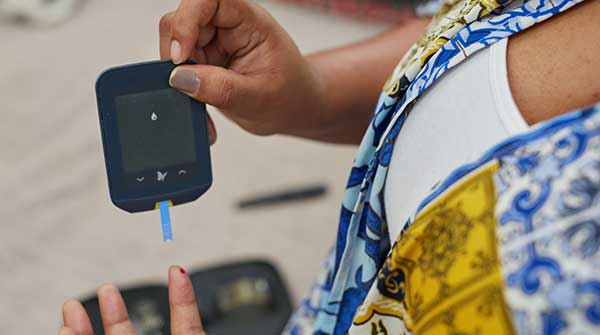 For parents of kids with diabetes, the beginning of each new school year brings not only the usual preparations, but also fears for their child’s health and safety. This is especially true if their school or school district does not have a policy to ensure staff are knowledgeable about diabetes, know how to prevent emergencies, and are able to assist students with daily diabetes tasks.
For parents of kids with diabetes, the beginning of each new school year brings not only the usual preparations, but also fears for their child’s health and safety. This is especially true if their school or school district does not have a policy to ensure staff are knowledgeable about diabetes, know how to prevent emergencies, and are able to assist students with daily diabetes tasks.
Type 1 diabetes affects more than 34,000 Canadian children under the age of 19; another 1,800 have Type 2 diabetes. Type 1 diabetes is when the body is unable to produce insulin, a hormone that controls blood sugar. It has no known cause or cure and usually begins in childhood, and is the most common diabetes in children.
Type 2 diabetes is the most common among all people with the disease, where the body either cannot effectively use or produce enough insulin. Type 2 diabetes usually develops in adulthood, although more children and adolescents are being diagnosed.
Most students can manage their diabetes independently or with minimal support, and they can fully participate in school activities, including gym, field trips and celebrations. However, some, especially very young children with Type 1 diabetes, may need trained personnel to help administer insulin, monitor blood sugar levels or supervise food intake and activity. Students with diabetes may also need flexibility in school rules to prevent low or high blood sugar, and, in some cases, may also need help with recognizing “lows” and “highs.”
A supportive school environment is critically important for keeping children with diabetes safe and healthy.
Proper diabetes management reduces the risk of life-threatening emergencies, prevents or reduces the risk of serious long-term complications, such as heart disease, limb amputation, kidney failure and blindness, and ensures that students with diabetes are able to learn and participate fully in school activities. Yet only five provinces have guidelines for children with diabetes at school: Newfoundland and Labrador, New Brunswick, Nova Scotia, Quebec and British Columbia.
Ontario recently formed a working group to address this issue and other jurisdictions have signaled their interest in forming such policies. At the school-board level, some boards and even individual schools have developed policies, leading to a patchwork of different care standards among school districts, and even among schools in the same district. Many schools and districts have no diabetes policies in place at all.
It is important that all children with diabetes be afforded the same protections and given the same opportunities to succeed, no matter where they live or attend school.
It is a team effort to enhance the health, safety, emotional well-being and participation of each student with diabetes. Everyone has a role in the care of the student to ensure a safe and healthy school experience. Parents and guardians need to notify the school of the diagnosis and meet with the school to develop an Individual Care Plan (ICP) so the necessary supports are arranged. School personnel need to participate in annual diabetes education, training and resource review to learn how to manage diabetes, including emergency procedures. Healthcare providers act as resources to the schools and assist in creating the student’s ICP.
But perhaps, most importantly, our provincial governments need to make proper diabetes management at school a priority.
Every province and territory should establish clear standards of care that school boards can follow to ensure the safety, health and optimal education for children with diabetes.
In the interim, school boards can begin the process of creating pragmatic guidelines such as those outlined by the Canadian Diabetes Association so that diabetes care across regions is equitable, safe and organized. Clear and consistent policies are better for the schools, better for families and provide an open and transparent process for communities to work with.
Everyone should also work to prevent students with diabetes from experiencing stigma and discrimination by promoting a positive, caring and inclusive learning environment through communication, education and cooperation.
Dr. Jan Hux is Chief Science Officer for the Canadian Diabetes Association.
Jan is a Troy Media contributor. Why aren’t you?
The views, opinions and positions expressed by columnists and contributors are the author’s alone. They do not inherently or expressly reflect the views, opinions and/or positions of our publication.


